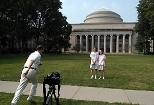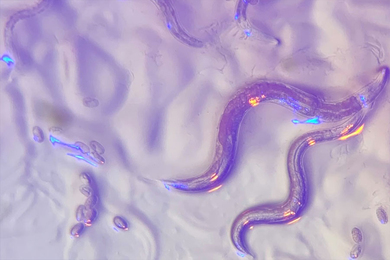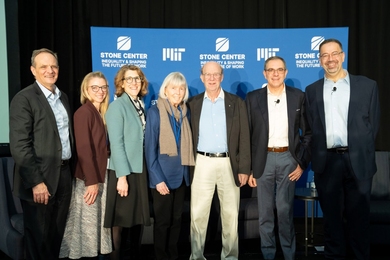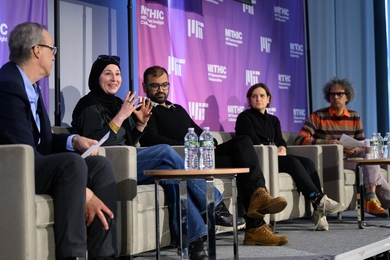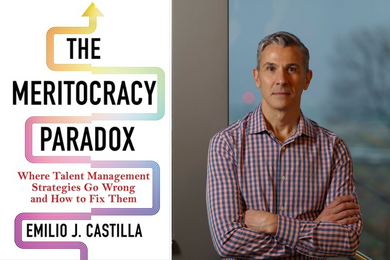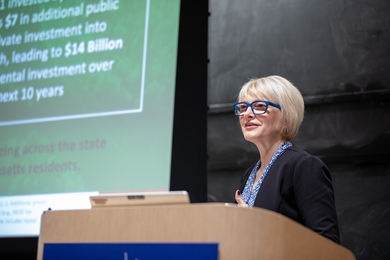Eighty-nine undergraduate and 93 graduate subjects are new for 2003-04. Among them:
Nanoscale materials (3.153)--Examines materials including semiconductor and metal nanoparticles and nanowires, carbon fullerenes and nanotubes, organic nanoparticles and dendrimers.
Biophysical chemistry and molecular design (5.65)--Biophysical approaches to the study of molecular and cell biological problems, including fluorescence, EPR, NMR, mass spectrometry and photochemistry.
Language and thought (9.40)--Examines whether people who speak different languages think differently, if learning new languages changes the way one thinks, if polyglots think differently in different languages, and whether some thoughts are unthinkable without language.
Human rights in theory and practice (11.164)--Examines international human rights mechanisms and covers human rights issues including gender and race discrimination, religion and state, national security and terrorism, globalization and human rights, and technology and human rights.
Race and science (21A.240)--Examines how race and racism have been created, justified or contested in scientific practice and discourse; asks whether the logic of race might be changing in the world of genomics and informatics, and with that changed logic, how we can respond today to new configurations of race, science, technology and inequality.
Anthropology of computing (21A.350)--Topics include early computation theory and capitalist manufacturing, cybernetics and World War II operations research, artificial intelligence, the hacking aesthetic, the growth of the Internet, and the emergence of "adaptive" and "evolutionary" computation.
Studies in European culture: plotting terror in European culture (CMS.878)--Surveys modern European culture to disclose the alignment of literature, opposition and revolution, examining representations of terrorism from the 19th century through recent times, such as Italy's Red Brigade, Germany's Red Army Faction and the Real Irish Republican Army.
Analysts' club (HST.979)--Students analyze problems and issues pertaining to the successful entrepreneurial management of biomedical businesses. Source material includes investment banker analysis reports, public-offering prospectuses and early-stage business plans.
Global feminisms (SP.409)--Considers how women redefine the notions of community and nation, and how development and access to the Internet affects their lives.
Food and power in the 20th century (STS.429)--Historical analysis of food production, processing and consumption in America.
Cold war science (STS.436)--Explores scientists' new political roles after World War II, ranging from elite policy-makers in the nuclear age to victims of domestic anti-Communism.
A version of this article appeared in MIT Tech Talk on August 27, 2003.
